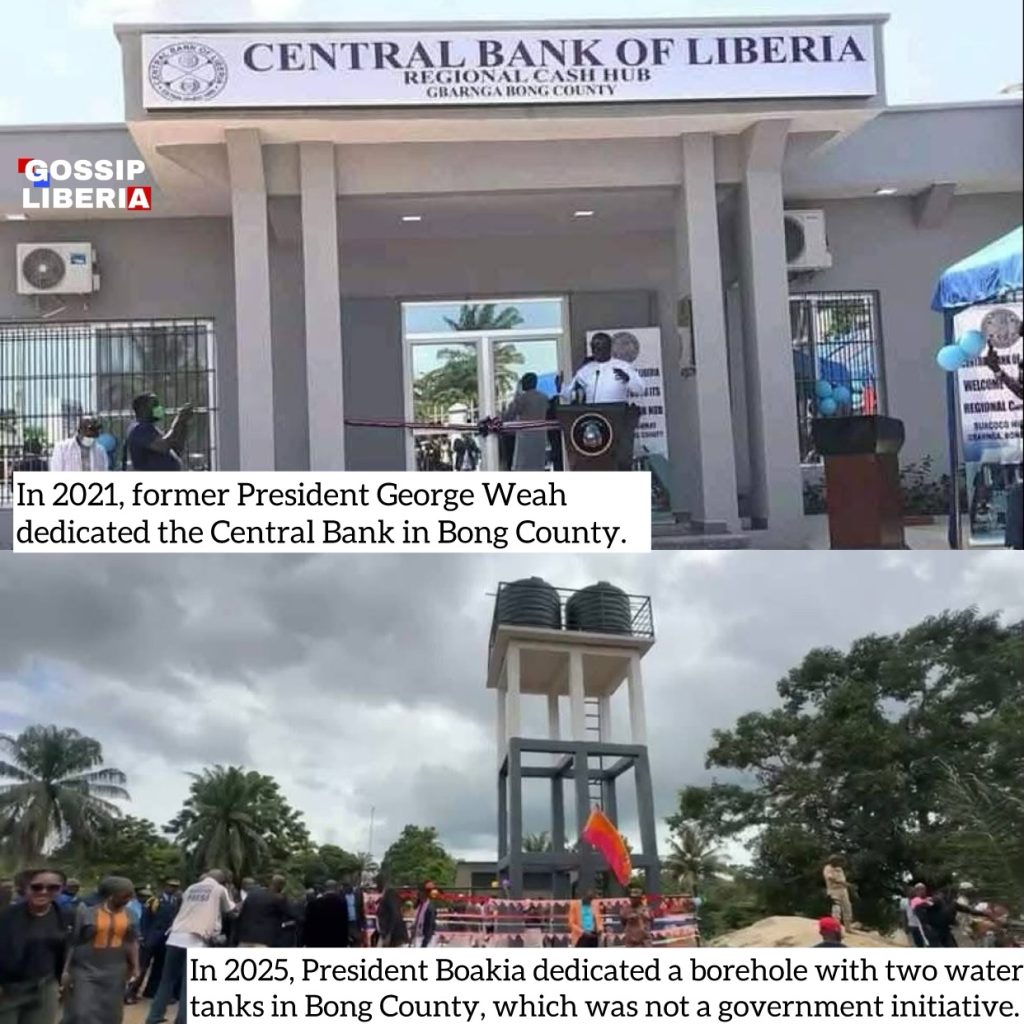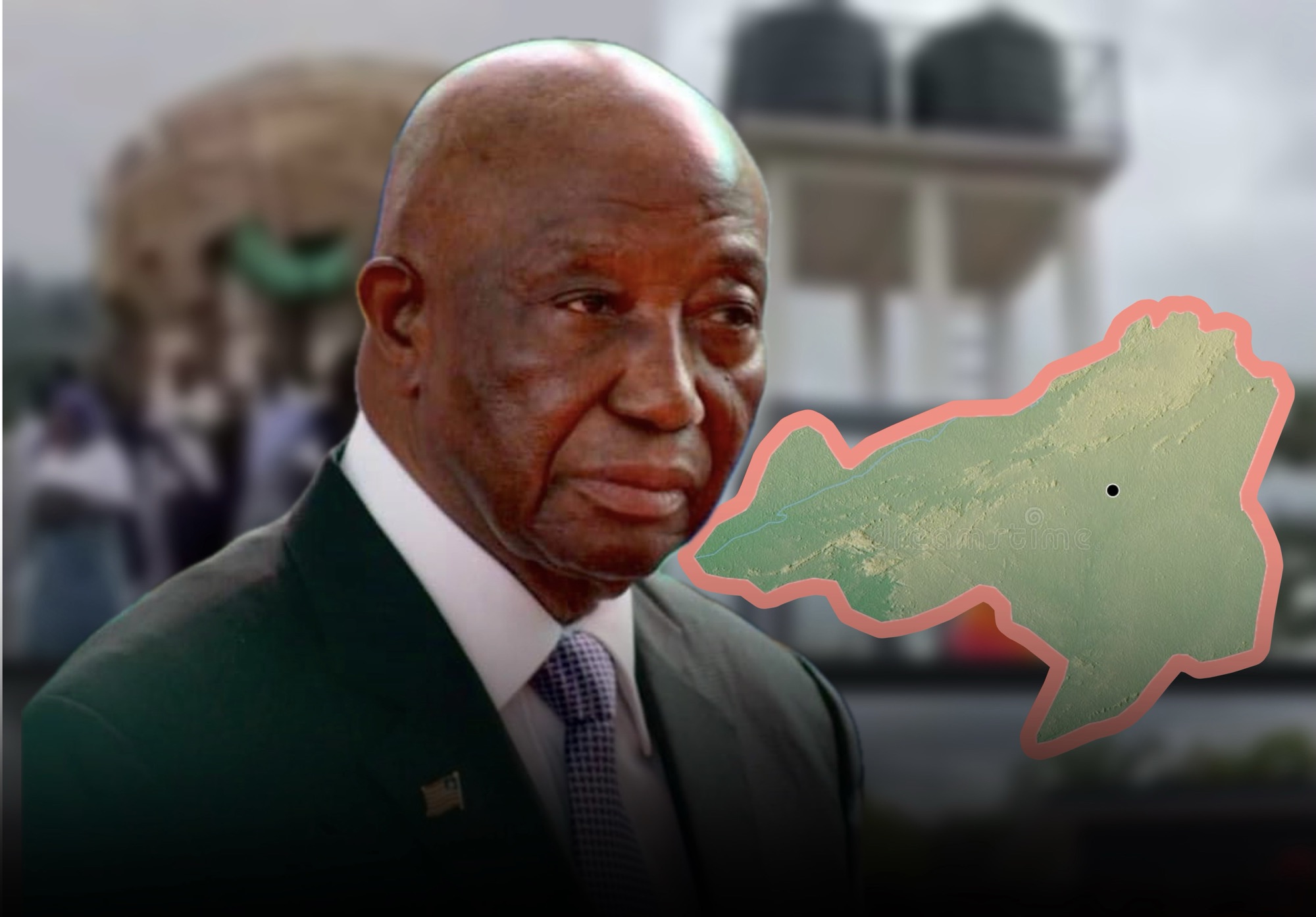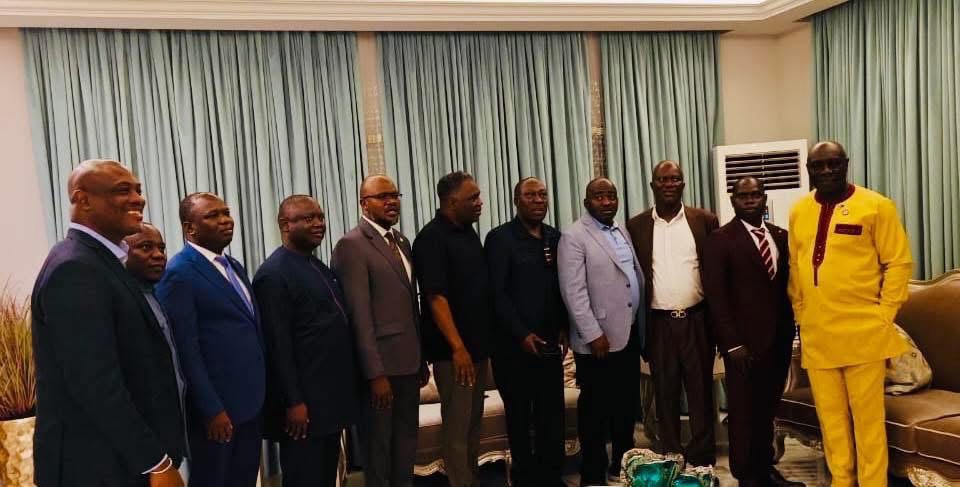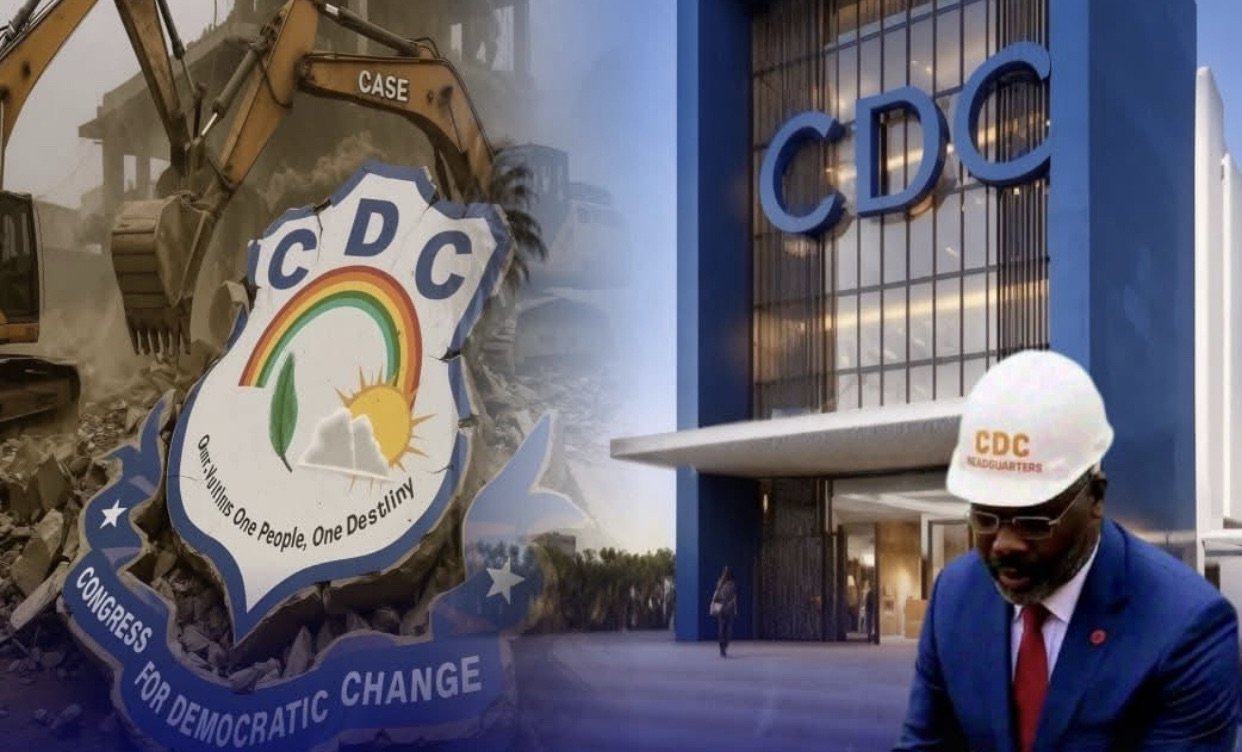Critics Question President’s Development Priorities as Social Media Reacts to Convoy Controversy
Bong County, Liberia – President Joseph Nyuma Boakai’s recent visit to Bong County has stirred mixed reactions among citizens, as critics question the administration’s development focus and handling of public movement during presidential travels.
The president’s July 19 visit, which included serving as Commencement Speaker at the Bong County Technical College (BCTC) graduation and dedicating a water tower and borehole in Gbarnga, was marked by controversy after reports surfaced that his convoy allegedly ordered all civilian vehicles off the highway to secure passage.
The news, which spread rapidly on social media, claimed that President Boakai’s convoy halted all traffic en route to Bong County, causing public frustration. However, the Executive Protection Service (EPS) has a security protocol that works in that way as a routine security protocol, commonly practiced during presidential movements, even within Monrovia.
The visit reignited conversations comparing Boakai’s initiatives to those of his predecessor, former President George M. Weah. Many Liberians fondly recalled Weah’s 2021 visit to the county, during which he dedicated a new Central Bank of Liberia (CBL) regional branch — a project viewed by many as a strategic economic boost.
In contrast, under Boakai’s administration, a recurring pattern of water tower and borehole dedications has become the centerpiece of county-level engagement. While access to clean water remains a critical need, the narrow scope of infrastructure development has drawn skepticism.
“Are Liberians really complaining about drinking water, or is it the only budget set aside for development under the Boakai administration?” one social media user posted, capturing a growing sentiment of disillusionment among the populace.

The latest borehole project, presented by the Center for Humanitarian Activities in Africa — an initiative led by Alhaji Sekou Swaray and dominated by Muslim women — was independently funded. Still, its dedication by the president raised questions about the government’s developmental input versus symbolic presence.
As the administration nears a year in office, citizens are increasingly demanding broader impacts — from job creation to road rehabilitation and educational reform. While President Boakai’s “Rescue Mission” slogan continues to echo through official statements, the people are asking for tangible evidence beyond ceremonial dedications.
The controversy underscores a deeper tension between perception and policy — and with the shadows of past leadership still looming, the legacy Boakai seeks to build may face even tougher scrutiny in the months ahead.






